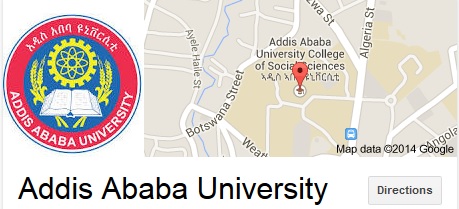Overview
The Computer Science program was started as one of the streams within the Department of Mathematics, Faculty of Science, in the early 1980s. As computers were introduced into governmental and nongovernmental institutions, the need for trained manpower in Computer Science was very vital. Realizing the growing need, a diploma program in Computer Science was launched in the evening program in 1983. In addition, the Department also started to offer Computer Science as a minor program for Physics, Statistics, and Library Science students. In 1993, a degree program in Computer Science was launched.
After the decision of the University Senate in August 2002, the Computer Science program was structured as an independent Department under the Faculty of Informatics. An MSc program in Computer Science was also launched at the beginning of the 2002/03 academic year. The Department stayed under the faculty of Informatics until it was placed under College of Natural Sciences in the new University structure in 2011/12 academic year.
The Department of Computer Science is currently running a newly revised four-year BSc program and an MSc program for both regular and extension programs. The Department offers several service courses in Computer Science each semester to several hundreds of students of the Departments in the College of Natural Sciences.
The Department uses five computer laboratories in the college with a total of more than 130 computers all fully connected to the Internet through a University-wide network. These laboratories are used to conduct practical works for the BSc degree program, the service courses and the evening computer science program. The Department also possesses two laboratories with about 50 connected computers dedicated to the graduate students of its MSc programs.
During the current 2022/23 academic year, there were a total of about 370 students in the regular undergraduate degree program and some 243 students in the evening undergraduate program. In the same year, there were also 111 students in its graduate programs (50 in the regular and 61 in the extension program). See the Table below for current student enrollment.
Mission, Vision, Values and Objectives
Mission
The Department’s missions are to:
- provide quality undergraduate and graduate education within the rapidly evolving areas of Computer Science;
- conduct research in Computer Science and its application areas;
- provide professional services to the community in the field of Computer Science.
Vision
The vision of the Department is to be a leading academic unit in the provision of quality education in Computer Science at undergraduate and graduate levels, and to be a focal point for the advancement of Computer Science research, innovation, and dissemination of valuable knowledge in line with the development endeavors of the country.
Values
The Department values include:
- team-work and cooperative spirit between and within instructors and students;
- attaining the highest recognition in teaching and research in Computer Science;
- academic honesty and respect for others as well as democratic and participatory methods of decision-making;
- maintaining the highest ethical and professional standards;
- providing quality education in an equitable and accessible manner.
Objectives
Based on the vision of the Department, its objectives are to:
- run Computer Science programs for undergraduate, graduate and continuing education students in order to attain the training needs of the country in the domain;
- offer Computer Science service courses to other Departments of the University;
- periodically review and revise the curricula of courses provided by the Department to cope with the dynamic nature of the field of Computer Science and to address the current development needs of the country;
- devise and enforce quality assurance strategies;
- organize well-equipped laboratories for all the programs run by the Department to aid the teaching/learning process;
- create sense of entrepreneurship in students;
- pay special attention to female and academically weaker students to ensure their success,
- formulate an integrated research framework for the Department and identify appropriate research projects for graduate students and staff and make regular supervision;
- initiate multidisciplinary research collaborations and conduct same;
- present and publish research results in appropriate national/international journals and conferences;
- create academic-industry linkage so that students acquire the necessary knowledge and skill in solving real-world problems to address local needs;
- coordinate and conduct seminars, workshops, and conferences in relevant areas of Computer Science;
- create partnerships with the private and public sectors, similar institutions locally and abroad;
- provide professional consultancy and advisory services in Computer Science applications and related areas;
- conduct advanced and professional short-term courses to upgrade the skills of practitioners so as to cope with the fast-growing development in the field of Computer Science;
- collect, organize, and make available information and knowledge in different areas of Computer Science to students, faculty, and the society at large;
- create conducive working environment for staff, and devise and implement staff development mechanisms.







